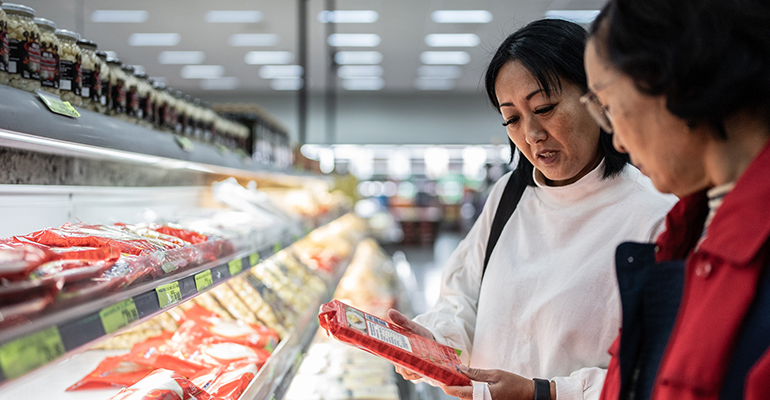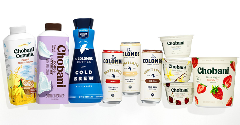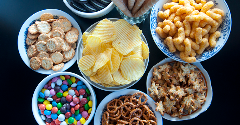News
Brazilian manufacturers must comply with warning label regulation, says court
7 Mar 2024The Federal Court of São Paulo has ruled that Brazilian manufacturers must comply with front-of-pack labelling regulation that requires unhealthy products to feature warning labels, scrapping a last-minute one-year extension.
The February court injunction went in favour of the Brazilian Institute of Consumer Protection (IDEC), which had brought legal proceedings against the regulatory agency, ANVISA, for extending the October 2023 deadline by one year.

Front-of-pack warning label extension scrapped
In 2020, Brazilian policymakers approved the regulation RDC nº 429/2020, which introduced front-of-pack warning labels on products that exceed certain nutrient thresholds. The mandatory nutrition warning label features a magnifying glass that alerts consumers to products high in sodium, added sugar, and saturated fat.
Manufacturers had a grace period of three years to ensure their product packaging complied with the regulation, which also introduced a nutrition fact table presenting nutrient information per 100 ml or 100 g of product. Only small producers and non-alcoholic drinks in returnable packaging were granted more time to comply, meaning a general deadline for compliance of October 2023.
However, in October last year, ANVISA issued a new regulation, RDC nº 819/2023, pushing back the deadline to October 2024. In response, IDEC filed a public civil action against ANVISA seeking to restore the original deadline.
Extension based on interference from the food industry, says IDEC
Last month, a São Paolo court decided in favour of IDEC, issuing an injunction that suspended the effects of RDC nº 819/2023. In its public civil action, IDEC argued that ANVISA’s decision was based on biased information from the food industry and was devoid of any independent scientific evidence.
According to ANVISA, the October 2024 extension was necessary so that manufacturers could exhaust their existing labels and packaging stock. However, IDEC pointed out that the regulation already allowed manufacturers to use existing stock by simply adding an updated sticker to the packaging, thus minimising food waste while ensuring consumers had access to easy-to-understand nutritional information.
IDEC criticised the consumer packaged goods (CPG) industry for “fail(ing) to organise itself within the 1,000 days they had to adapt to the new nutritional labelling rules to the detriment of the public interest”.
According to the injunction, cited on IDEC’s website, the judge questioned ANVISA’s action, asking: “How can we explain that 57 isolated requests led to the alteration – in a few days – of a public policy destined to cover thousands, perhaps millions, of food manufacturers under RDC nº 429/2020?”
IDEC: Injunction is ‘a very positive response’
Leonardo Pillon, senior lawyer at IDEC's healthy and sustainable food programme, said the judge’s preliminary decision was “a very positive response”. He criticised ANVISA for bowing to the interests of industry, adding that it was extremely damaging to the agency’s reputation.
“There is a double loss of the agency's credibility: internally, by having disregarded the positions of its own technical [remit], and externally by having suppressed social participation,” he said in a statement translated from Portuguese.
According to the IDEC lawyer, the court’s decision consolidated the right of Brazilian consumers to make more informed choices about the potential harmful effects on health of ultra-processed and processed products. Brazil, the largest country in South America, has growing rates of obesity, overweight, and other non-communicable diseases linked to an unhealthy diet.
Asked if it had a response to the court injunction, a spokesperson for ANVISA told Ingredients Network it would present its position in a legal proceeding.
Related news

Macauba oil emerges as potential rainforest-friendly palm oil alternative
1 Mar 2024
Producers and researchers consider the rainforest-friendly credentials of Macauba palm oil and whether its sustainability credentials offer an opportunity to replace palm oil.
Read more
Reviving childhood favourites: Healthier twists on classic snacks
20 Feb 2024
Consumers are increasingly leaning on brands for comfort and familiarity - a trend US-based brand Justin’s is tapping into. With its recent launch of Chocolate Candy Pieces, Justin’s is drawing on nostalgic marketing trends, while incorporating better-...
Read more
Is it useful to classify foods as ultra-processed?
26 Jan 2024
The term ‘ultra-processed’ is gaining traction – and notoriety. But does it help consumers make healthier food choices or encourage manufacturers to make their ultra-processed products healthier? Food industry stakeholders explored the term’s usefulnes...
Read more
Chobani expands drink presence with La Colombe acquisition
16 Jan 2024
Greek yoghurt giant Chobani has purchased US coffee brand La Colombe Coffee Roasters for $900 million, furthering its expansion into beverage categories like coffee, oat milk, creamer and ready-to-drink offerings.
Read more
‘Healthy’ additives make ultra-processed foods more appealing
4 Jan 2024
Almost three-quarters (74%) of Americans would try an ultra-processed food if it provided a health benefit such as better sleep, better immunity, or increased energy, according to an industry survey.
Read more
Fi Europe’s New Product Zone elevates the nutrition of everyday indulgences
22 Dec 2023
At Fi Europe 2023's New Product Zone, eight health ingredients, each offering an enhanced nutritional profile of various products, were on display. These ingredients address the evolving needs of the food and beverage industry and cater to consumers se...
Read more
Colombia introduces tax on ultra-processed foods
7 Dec 2023
In a bid to curb rates of obesity and other non-communicable disease, the Colombian government has introduced a tax on various ultra-processed food (UPF) and drink products.
Read more
Smuckers, Hostess deal latest food industry mega merger
2 Oct 2023
The J.M. Smucker Co. is to acquire fellow American snack company Hostess Brands for approximately $5.6 billion, following several other high-profile mergers in food and snacks so far in 2023.
Read more
Position snacks as affordable staples, says Euromonitor
13 Mar 2023
With snack sales impacted by the Covid-19 pandemic, war, and inflation, 2023 could see a slowdown in growth with a consumer focus on value, says Euromonitor. Where are the opportunities for food and beverage brands?
Read more